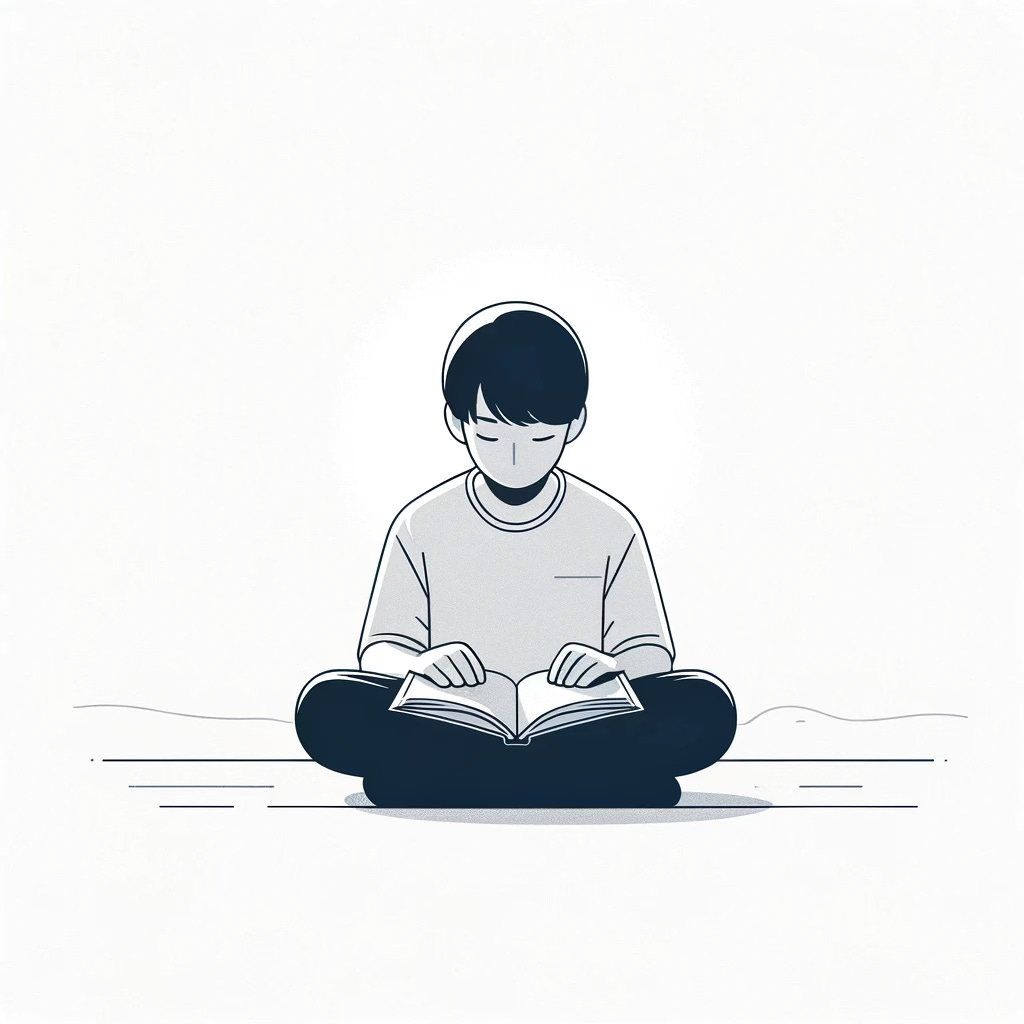#41 The Way of the Taoist: Persistence and Embodying the Tao
Tao Te Ching, Chapter 41: Uncover the essence of the Taoist way: being natural, the sheer will to persist, and spiritual freedom.
Welcome back to The Wisdom of Lao Tzu.
This week, we're delving into Chapter 41 of Tao Te Ching.
Lao Tzu describes the impact of hearing about the Tao on three kinds of people in the world. When truths or facts are presented to people with different levels of understanding, we can find parallels in everyday life.
After reading this chapter, I wondered: Are we different from the ancients in terms of understanding? What qualities of ancient Taoists can we learn from?
Let’s find out.
**41**
上士聞道,勤而行之;
中士聞道,若存若亡;
下士聞道,大笑之。
不笑不足以為道。
故建言有之:
明道若昧;
進道若退;
夷道若類;
上德若谷;
廣德若不足;
建德若偷;
質真若渝;
大白若辱;
大方無隅;
大器晚成;
大音希聲;
大象無形;
道隱無名。
夫唯道,善貸且成。
Border-crossing: English translations
#1 Lin Yutang’s version
When the highest type of men hear the Tao (truth),
They try hard to live in accordance with it,
When the mediocre type hear the Tao,
They seem to be aware and yet unaware of it.
When the lowest type hear the Tao,
They break into loud laughter —
If it were not laughed at, it would not be Tao.
Therefore there is the established saying:
“Who understands Tao seems dull of comprehension;
Who is advanced in Tao seems to slip backwards;
Who moves on the even Tao (Path) seems to go up and down.”
Superior character appears like a hollow (valley);
Sheer white appears like tarnished;
Great character appears like insufficient;
Solid character appears like infirm;
Pure worth appears like contaminated.
Great space has no corners;
Great talent takes long to mature;
Great music is faintly heard;
Great form has no contour;
And Tao is hidden without a name.
It is this Tao that is adept at leading (its power) and bringing fulfillment.
#2 Edmund Ryden’s version
Top officials hear the Way: they can (hardly) fare by her.
Average officials hear the Way: parts they keep; parts they lose.
Low officials hear the Way and greatly mock her.
Were there not this great mockery,
She could not be good enough to be the Way.
Therefore,
A proverb puts it:
Bright Way looks obscure;
Forward Way looks reversed;
Smooth Way looks rough.
Utmost vitality looks like a gully;
Great purity looks filthy;
Expansive vitality looks inadequate;
Affirmative vitality looks insouciant;
Substantive authenticity looks unstable.
The great square has no corners;
The great completion is not completed;
The great note has no voice;
The great symbol has no shape.
The Way is great yet nameless.
The Way alone is good at inaugurating and then completing things.1
#3 D. C. Lau’s version
When the best student hears about the way
He practices it assiduously;
When the average student hears about the way
It seems to him one moment there and gone the next;
When the worst student hears about the way
He laughs out loud.
If he did not laugh
It would be unworthy of being the way.
Hence the Chien yen has it:
The way that is bright seems dull;
The way that leads forward seems to lead backward;
The way that is even seems rough;
The highest virtue is like the valley;
The sheerest whiteness seems sullied;
Ample virtue seems defective;
Vigorous virtue seems indolent;
Plain virtue seems soiled;
The great square has no corners.
The great vessel takes long to complete;
The great note is rarefied in sound;
The great image has no shape.
The way conceals itself in being nameless.
It is the way alone that excels in bestowing and in accomplishing.2
Deeper dive
He Shanggong’s (approximately 200 BC - ?) comment on this statement — “The great image has no shape,” reveals the impression of a Taoist to the outside, “The one who follows the great Tao is so simple, like the uncarved block that it is impossible to describe.”「大法象之人,質樸無形容」
Can we accurately depict the way of the Taoists? And what can we learn from them?
It is common sense that we all respond to things differently. As Lao Tzu has told us in Tao Te Ching, Tao is elusive and difficult to practice. People with different levels of understanding and experiences respond in various ways when they hear the words about the Tao.
So, when we say a Taoist is a person who follows the Tao, we are referring to the fact that they understand the character of the Tao and have discovered their Tao in life.
The fundamental nature of the Tao is that it possesses a liberating and empowering spirit, from which the myriad things in the world can self-transform and establish themselves. how to do with this fundamental liberating spirit
The way never acts yet nothing is left undone.
Should lords and princes be able to hold fast to it,
The myriad creatures will be transformed of their own accord. (Chapter 37)
… it gives them life yet claims no possession;
It benefits them yet exacts no gratitude;
It is the steward yet exercises no authority.
Such is called the mysterious virtue. (Chapter 51)
As the source of things in the world, the Tao helps the myriad things grow, yet it does not intend to control, appropriate, or dominate them. In light of the Tao’s nature, the awakened Taoist learns the non-contending philosophy.
Retire when your work is done,
Such is Heaven’s way. (Chapter 9)
Also, as the Tao is in constant motion and cycle, it follows that a Taoist appreciates the value of action and inaction in life,
When the best student hears about the way
He practices it assiduously;
Thus, dedication, commitment, and persistence are crucial to a Taoist, as it is also about living and defending their natural paths.
“The Tao follows what is natural”(Chapter 25), meaning that it is a Taoist’s responsibility to seek a natural path in life. Living naturally is a state in which we are at peace with our inborn nature and what we are good at instead of being allured and driven by external influences.
Therefore, to lead a natural path in life indicates a lifelong journey of active learning, exploring, and experiencing with contemplation and spiritual cultivation.
Spiritual Taoism
Essentially, a Taoist is a person who deeply appreciates the value of naturalness, applies it to guiding their own life, and is happy to see it being actualized in the world around them.
As a spiritually awakened and liberated person, you understand what it feels to be captivated by some specious values and ways of doing things that have been holding you back from pursuing the things you love and are passionate about in life.
In this sense, only you can know the best and proper life path for you. Staying on the natural path means always recognizing and following that inner voice.
We may sometimes get lost in life’s twists and turns, but that does not mean we should deviate from the natural path as long as we can feel that sense of disconnect and know how to find our way back.
Fundamentally, following your Tao to live naturally is about being empowered to do what you do best. This would allow you to embrace fulfillment, joy, and freedom instead of living in regret and pain.
In real life, it can be challenging to discover and connect with our Tao, our unique and natural path. In such circumstances, we need to be patient and carefully observe our growth. As Lao Tzu said, “Great talent takes long to mature,” which means that self-cultivation and personal improvement are lifelong tasks. We need to stay on course and keep at it.
We also learn the way of the Taoists who are broad-minded, inclusive, and humble.
The highest virtue is like the valley;
The sheerest whiteness seems sullied.
If we incorporate these principles into our everyday lives, we will become unobtrusive when mingling with others and, therefore, find it easy to navigate the social dynamics.
Moreover, we can get detached from being obsessed with perfection as we understand the consequences of overreach. As Lao Tzu has warned,
He who stands on tiptoe does not stand (firm);
He who strains his strides does not walk (well). (Chapter 24)
Thanks for reading!
Wishing you peace and freedom,
Yuxuan
Daodejing, trans. Edmund Ryden. (Oxford: Oxford University Press, 2008), 87.
Tao Te Ching, trans. D. C. Lau. (London: Penguin Classics, 1963), 48.







